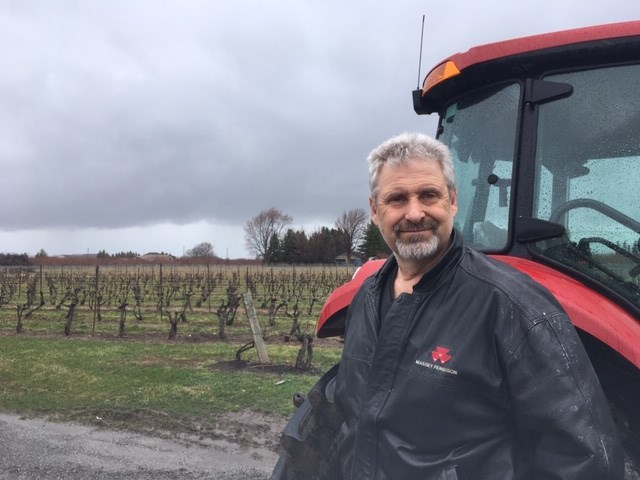
Farmers have been put on notice by Prime Minister Justin Trudeau, and in Ontario by Premier Doug Ford: they must do a better job of protecting the health of their migrant workers.
Farm communities continue to have COVID-19 outbreaks, and Saturday, a 55-year-old Mexican man, a father of four who had been coming to Norfolk County to work for the last 10 years, died in a London hospital. He is the third migrant worker to die of the virus in Ontario.
There has been one outbreak on a St. Catharines flower farm, but nothing new there, or elsewhere in Niagara.
Monday, both the federal and provincial leaders called for more inspections of farms, where close living quarters allow the disease to spread quickly. Ford is also calling for more testing of workers on farms where there have been outbreaks.
Locally, Coun. Erwin Wiens, also a farmer, says he welcomes the news that upper levels of government are sending inspectors to visit farms and check bunkhouses.
Wiens has said he would look into any complaints of the mistreatment of workers by local farmers, and has called for anyone who knows of mistreatment to call him, saying he would do his part to stop it.
That did result in some complaints of specific farms, and he did follow up on them and speak to the farmers, he says.
He wouldn’t say whether he had reported them to the proper agencies, although that is what he is encouraging the workers to do.
While some of the complaints were about workers’ hours, most were housing-related. And while there are farmers he would like to see do better by their workers with the housing they provide, they have all been inspected within eight months of the arrival of their temporary help.
“If there are issues, Public Health should be addressing them,” he says.
“I’ve spoken to a couple of farmers already today,” he said Tuesday, “but their homes have all passed inspection.”
If there is concern about cramped quarters and too many people sharing a bathroom, it’s the system approving those conditions that needs to be changed, he says.
Any farmer who applies through the seasonal worker program has to have had an inspection by the public health department in that time period before submitting his application, otherwise it won’t be successful.
“Do I wish some farmers would do more? Of course I do. I like the adage that if you wouldn’t want to live in those conditions, you shouldn’t expect others to,” he says.
“But if you want to change the housing regulations, then that has to come from the top.”
He doesn’t ask to see living quarters or carry out inspections himself — that’s not his expertise. He can call the health department, and will, but so can anyone who has a concern, he says.
Farmers are also supposed to ask about the health of their workers every day. He says he asks them if they are doing that, and they ensure him they are.
“I can’t be sure they are actually doing that,” he says, “but nobody wants an outbreak on their farm.”
He has been criticized in letters to newspapers and on social media for not doing more, for being “disingenuous” by appearing not to know that mistreatment exists in NOTL and where to find it. With his background in farming and the farming community, some seem to think he does know and isn’t doing anything about it.
He says he accepts criticism, and hopes to learn from it, but stands by his assertion that he can’t do anything to help if he doesn’t know where the problems are, and he doesn’t know unless someone tells him.
There are serious allegations being made, by people who have no reason to fear for their jobs, he says.
“You tell me, what am I supposed to do? How can I take it on if I don’t know where it is? It’s easy to write a letter to the newspaper or speak out on social media, but if you know something, call me.”
A recent report on mistreatment, but also not naming the farms where it takes place, calls for workers to have permanent resident status, and if that is the answer to the current problems, it’s not enough to put it out to the media — change will have to come from the federal government, he says.
There are concerns that workers who are being mistreated won’t speak up for fear of being sent home, and resident status would protect them from that, he agrees, but wonders where they will go if they leave their job on the farm, unless they can find another farm to take them on. Otherwise, they will end up with minimum-wage jobs and no housing.
The majority of men and women working on farms have cell phones, and if they don’t, one of their friends will, he says, believing the best answer is for them to report abuse. They are given a package on arrival that gives them numbers to call, and there are posters in the bunkhouses also telling them who to call with complaints.
While newcomers to the program might be afraid of reprisals, “I think those who have been coming for a number of years would have the confidence to speak out.”
And if organizations wanting to help improve the conditions for workers know where the mistreatment is occurring, he adds, it would be much more helpful to share that information so those who are in a position to help can do so.